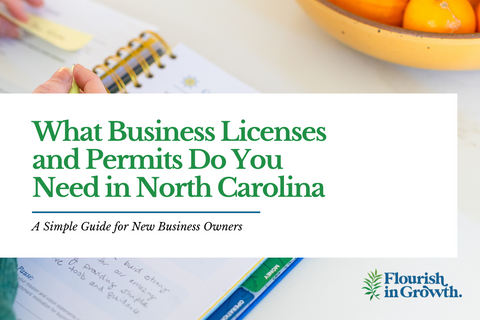How to Know if Your Hobby Should Become A Business
And what you should never tell the IRS
My best friend is an amazing seamstress. When the world shut down in March of 2020, she wanted to make masks and with the help of YouTube videos, she became not only an expert mask maker, but, I’ve been the very lucky recipient of custom tote bags with reinforced pockets, a perfectly sized pencil/pen holder and the very cutest toiletry bags. She sews beautifully.
 Perfectly sized pencil and pen holder.
Perfectly sized pencil and pen holder.
I have a sister who bakes amazing chocolate chip cookies and she won first place at a chocolate chip cookie party with her recipe which includes browning the butter and refrigerating the dough for 24 hours. It’s a little ‘extra’ and you can taste the effort. She bakes beautifully.
They excel at these hobbies and I would happily buy their handmade products. You may be here because you are evaluating whether or not to take the plunge and turn your hobby into a business. This can feel like a tricky thing to decide and I’ve counseled many small business owners who made the plunge based on their love of hobby. Here are a few more considerations for taking this step.
First and perhaps most tricky, there is a mindset shift when you decide to turn a hobby into a business. Think about it like dating. You can likely tell on a first or second date if you want to pursue a deeper relationship with someone. Some people may be really fun for dinner out but you know they aren’t the right partner for you. As a partner, their quirks might become big problems or their values might clash with yours. Similarly, your attitude around your hobby could be casual, perhaps you pick it up here and there because you enjoy it. While you are invested in the outcome in that you want to do well, your livelihood isn’t based on your level of execution. The mindset shift for going from hobby to business is not doing the thing just for the love of it, it’s doing the thing with the intent of creating a livelihood.
Ask yourself: How do I think about this hobby now? Am I willing to shift the way that I think about it for the sake of a business

From hobby to business. Just because it isn’t the same
doesn’t mean it’s not good.
Second, your physical actions change. A hobby that you’ve chosen to turn into a business usually becomes a lot less about your experience and enjoyment of performing the hobby and more about the operation of creating a sustainable business that will pay for itself and pay you!
Let’s say you have a soap business. Making ten bars of soap as a hobby is significantly different than making thousands of bars of soap and then finding customers who want said soap. The physical movements will start to focus on efficiency and you’ll probably be a little more incentivized to have an ideal outcome every time you manufacture. You may love making thousands of bars of soap or you may not! If you don’t, you can still build a soap business but you may be either hiring staff or outsourcing the production.
If you are considering starting a service-based business, for example: gardening or organizing. You may find yourself actively moving for 6-8+ hours a day. While some people will be excited at the idea of that much movement, it may not be feasible or realistic for everyone. This isn’t to say it’s not possible if you have limited mobility — but the way that you structure your business would need to focus on the right staff or team to make it happen.

Top two pictures: soap made at home. Bottom photo: soap made on a commercial production line with specialized equipment.
Ask yourself: Do I want to change the way that I move? How will it shift? Will I move a lot more or a lot less?
Third, a hobby doesn’t make money. A hobby is an activity done regularly in one's leisure time for pleasure. Source: Oxford Dictionary. Whatever you do, never tell the IRS that you have a ‘hobby business.’

Hobby: an activity done regularly for leisure time or pleasure
Here’s why: the tax code is very specific about what can and cannot be written off as a business activity and hobbies are not businesses. The IRS has made it clear that hobbies and businesses are two different things. While you can legally deduct business expenses on your income tax filing, you cannot deduct hobby expenses. Bummer, I know.
Many people have dipped their toes in the water of entrepreneurship by trying to sell their hobby to see if it is something they’d like to do as a business. This is often referred to as a side hustle and you can experiment with a hobby to see if it makes sense to turn it into a business — I encourage it! However, I do recommend keeping a separate set of expenses and income from your actual hobby activities so that you can measure your costs and expenses.
Here’s a snapshot of a spreadsheet example of how you might track expenses and sales.

Example expenses and income spreadsheet.
If it were me, this is how I would ‘test the waters’ before deciding to go full-time into a business from a beloved hobby. Want your spreadsheet to get started? Here’s a link to download your copy.
And here’s the wonderful thing about entrepreneurship — like life, it’s a daily process! Things will rarely all be perfect and that’s okay! You’ll learn and adjust as needed.
Ask yourself: What reminders, tools, and processes do I need to start tracking my work so that I can effectively measure my progress?
Example of reminders/tools/processes:
- a calendar reminder to update my financial spreadsheet
- a journal to recap what I do each day for my business
- expert help from someone who’s already gone from hobby to business
Fourth, our customers are not our friends and family. Loved ones are going to support us in our endeavors but they alone can’t sustain our business. Of course, I’ll buy the cookies because my sister is an amazing baker but she needs more than just me as a customer!
Unlike businesses, hobbies don’t require a community of people (customers) who believe in and want your product or service. One of the biggest barriers that small business owners face is reaching their customers. The big scary word is ‘marketing.’ Marketing isn’t scary once you know how, but I get the fear behind not knowing! I have walked through those questions with many small business owners. That’s the reason that I created The Guided Small Business Planner™. It’s a step-by-step guide for every part of your business, including marketing!
Ask yourself: Am I willing to learn how to market so that I can reach my customers effectively?
I hope you find these questions helpful as you think about taking the step!
If you get through these questions and you still aren’t sure if you want to try to turn your hobby into a business, try it awhile as a side hustle. Track expenses and sales separately. See if you like the shift of focusing on business rather than hobby. You may love it and if you don’t, you don’t have to live with a big question as to whether or not you should have tried.





